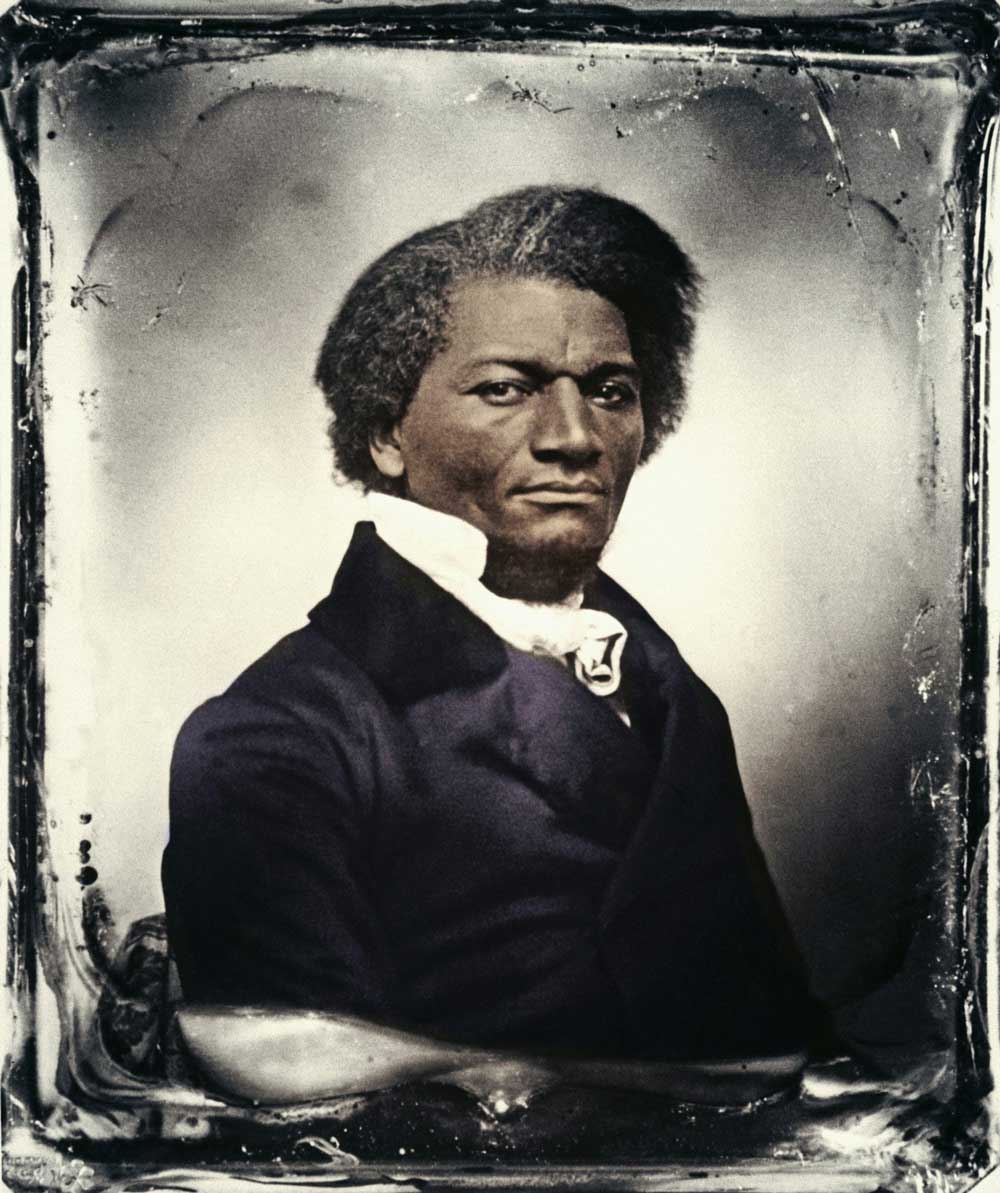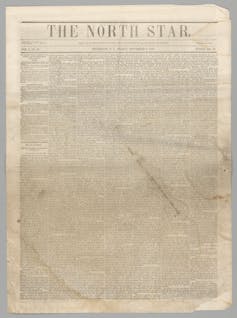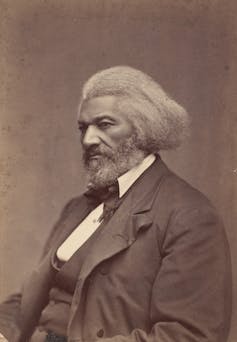
By Christine Kinealy
Though Frederick Douglass remains the most well-known abolitionist to visit Ireland in the decades prior to the American Civil War, he was not the only one.
As many as 30 Black abolitionists and activists also traveled to Ireland between 1790 and 1860. Olaudah Equiano was one of them. Born in Africa, Equiano was kidnapped when he was about 10 years old. But he later purchased his own freedom, wrote a bestselling autobiography and arrived in Ireland in 1791 as a guest of the United Irishmen, a group of radical nationalists.
Another was Sarah Parker Remond, who came to Ireland in 1859 and stayed with the same family who had hosted Douglass 14 years earlier. Having for the first time experienced equality, she could not bear to return to America.
Instead, she completed a degree at a college in London and moved to Italy, where she trained as a medical doctor. Both Equiano and Parker Remond worked closely with Irish abolitionists.
Even before Douglass arrived in Ireland in 1845, he was aware of the rich tradition of Irish men and women involved in the transatlantic movement to bring an end to the U.S. system of enslavement.
In particular, he was an admirer of the Irish nationalist leader Daniel O’Connell. A vocal critic of enslavement, O’Connell had played an important role in bringing it to an end in the British Empire in 1833.
The making of an abolitionist
Born into enslavement in Maryland in 1818, Frederick Augustus Washington Bailey met his enslaved mother only a handful of times before she died. It was generally assumed that his father was the white owner of the plantation.
At the age of 20, Frederick escaped to New York, where he changed his surname to Douglass.
Although he could have continued on to Canada, where he would have been safe, he chose to remain in the U.S. and become involved in abolitionist activities. Despite having received no formal education, Douglass proved to be a dazzling orator who had firsthand experience of enslavement.
Douglass’ primary motive for traveling to the United Kingdom in August 1845 was to avoid being returned to enslavement. Seven years earlier, Douglass declared himself free. But under American law, he was still designated as a “fugitive slave” and, therefore, could be captured at any time.
By the age of 27, his fame had grown, thanks to his lectures for the American Anti-Slavery Society and the success of his autobiography, which he had published in May 1845.
Clearly, he was a thorn in the side of slavery and those who supported the institution.
In the year before he visited Ireland, Douglass wrote:
“The real, and only-to-be-relied-on movement for the abolition of slavery in this country, and throughout the world, is a great moral and religious movement. The work of which is, the enlightenment of the public mind, the quickening and enlightening of the dead conscience of the nation into life, and to a sense of the gross injustice, fraud, wrong and inhumanity of enslaving their fellow-men.”
The struggle in Ireland
Douglass left America reluctantly, as he was married and a father to four young children.
Two days after arriving in the port of Liverpool, Douglass traveled to Ireland, where a leading Irish abolitionist, Richard Webb, had offered to reprint Douglass’ autobiography to provide him with some much-needed income. Douglass had intended to spend only a few days in Dublin but ended up staying four months after receiving such a warm welcome.
During this time, he gave almost 50 lectures throughout the country. Despite his arduous schedule, he referred to these months as the “happiest” period of his life:
“I live a new life. The warm and generous co-operation extended to me by the friends of my despised race … and the entire absence of everything that looked like prejudice against me, on account of the color of my skin – contrasted so strongly with my long and bitter experience in the United States, that I look with wonder and amazement on the transition.”

Heritage Art/Heritage Images via Getty Images
Part of Douglass’ transition was based on Irish leader O’Connell’s political approach and belief in universal human rights:
“I am the friend of liberty in every clime, class and colour. My sympathy with distress is not confined within the narrow bounds of my own green island. No—it extends itself to every corner of the earth. My heart walks abroad, and wherever the miserable are to be succoured, or the slave to be set free, there my spirit is at home, and I delight to dwell.”
O’Connell had won political rights for Catholics, who were traditionally regarded by the British establishment as second-class citizens in Ireland. The comparison was not lost on Douglass, who wrote in an 1846 letter to well-known American abolitionist William Lloyd Garrison:
“I see much here to remind me of my former condition, and I confess I should be ashamed to lift up my voice against American slavery, but that I know the cause of humanity is one the world over. He who really and truly feels for the American slave, cannot steel his heart to the woes of others; and he who thinks himself an abolitionist, yet cannot enter into the wrongs of others, has yet to find a true foundation for his anti-slavery.”
Return to America
In January 1846, Douglass left Ireland to lecture in Scotland and England. While there, he became homesick, longing to see his family again.
A group of Irish and British women provided a solution. They raised the money and completed the legal process to purchase Douglass’ freedom.

Sepia Times/Universal Images Group via Getty Images
Douglass returned to America in April 1847 as a free man. But his newfound status did not protect him from experiencing prejudice and segregation.
Five years after his return home, Douglass delivered one of his most scathing attacks on American enslavement:
“What, to the American slave, is your Fourth of July? I answer: a day that reveals to him, more than all other days in the year, the gross injustice and cruelty to which he is the constant victim. To him, your celebration is a sham.”
The long arc of history
In the years following the end of the American Civil War, Douglass’ influence as an international champion of human rights continued to grow.
He revisited Ireland in 1887, but this time as an American citizen who owned a passport and was allowed to cross the Atlantic in a first-class cabin.
Douglass explained that the reason for the trip was “to look on the faces of people who had been kind to me 40 years earlier.”
Sadly, most were dead.
During this visit, Douglass announced his support for Irish nationalists and their long struggle for independence.
Back home, Douglass continued to lead the battle against “the hidden practices of people who have not yet, abandoned the idea of Mastery and dominion over their fellow man.”
For Douglass, continued resistance was necessary, and he invoked three words that he had learned from O’Connell when in Dublin in 1845: “Agitate, agitate, agitate.”
![]()
Christine Kinealy is Director of Ireland’s Great Hunger Institute at Quinnipiac University.





























Deirdre says
I wasn’t aware of this at all, but I’m not surprised, Irish people have always fought against social injustice.
As a first generation American born to Irish parents, I’m proud of my people, lately highlighted in the recognition of the state of Palestine and their consistent support for the people there, going back years.
There’s a statue in Phoenix Park in Dublin honoring the fight for independence in India against the British.
When I was in Ireland before last Christmas to see my family we were all shocked about what was happening in Gaza at that point, these things are discussed socially. Apparently that’s been true for many years, long before media coverage of anything.
The point is, if you’re seeking truth and trying to empower people that are victims of injustice, you won’t see too many of them in America. That’s true today, and it was true in the past as well.
Atwp says
I never thought the Irish cared for my people. I thought all white countries hated my people. I see I was wrong. Good job Ireland. She maybe my home one day.
Krystal Daniels says
Frederick Douglas rose to notoriety and fame from the hard work and finances of a black woman, who is never mentioned. His wife encouraged and funded his quest for equality and justice only to have him leave her for his younger assistant of a different race. Who then was the only one credited for helping his movement.
Atwp says
Krystal thank you for the information. I didn’t know that.